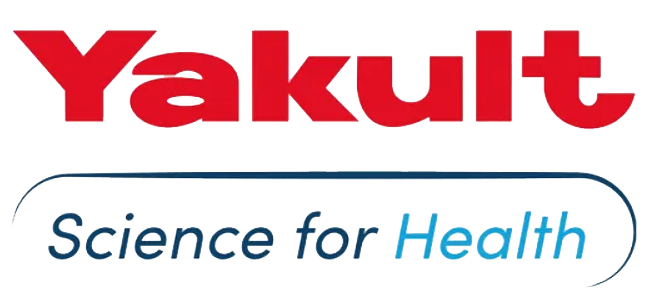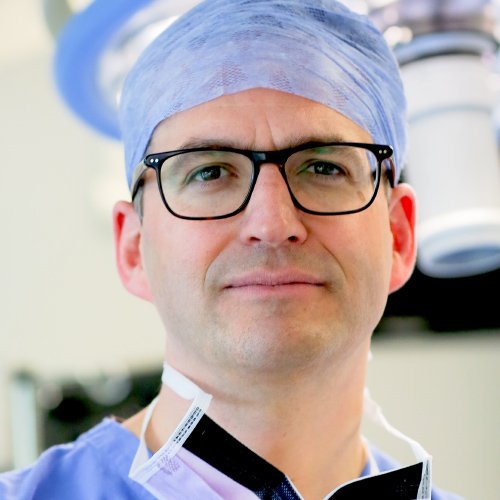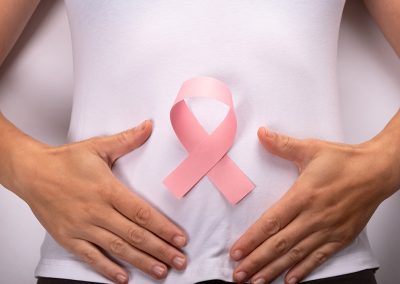
Free
6 hours
Yakult Science Study Day
‘Gut’ to grips with the science
Thursday 02 November 2023, 10:00 – 17:15 GMT
6 hours

Yakult Science Study Day
‘Gut’ to grips with the science
Thursday 02 November 2023, 10:00 – 17:15 GMT
6 hours
free
6 hours
OPEN TO ALL HEALTH PROFESSIONALS, TUTORS AND STUDENTS
For many years the Yakult Science Team have organised a one-day national conference for healthcare professionals, students, and researchers exploring the latest research into the various aspect of the gut microbiota and probiotics. This year MyNutriWeb and the Yakult Science Team have worked together to develop this full day symposium featuring a variety of experts to help you get to grips with the latest science on the gut microbiota and what this means for practice.
The importance of ‘good gut health’ has exploded in the national media in recent years, but with so much information out there it can be hard for health professionals (let alone their patients and clients) to make sense of it all.
In this study day, we’ll focus in on getting to grips with the latest science covering diverse topic areas and discussing what this means for professional practice.
Presentations will cover:
- gut microbiota and personalised nutrition
- menopause, hormones and the gut microbiome
- the gut-brain axis and mood
- the science of probiotics and prebiotics
- the gut-skin axis
- advances in the science of the gut microbiome
- practical take-home advice to make sense of the current research base
This event will also include an award ceremony and optional virtual networking session. It has been designed for all professionals with an interest in the gut microbiome – in particular, dietitians, nutritionists, GPs, tutors and students.
CHAIR:
• Dr Emily Prpa, Science Manager, Yakult Science for Health

Chairs introduction
Dr Emily Prpa
Science Manager, Yakult UK & Ireland
Dr Emily Prpa’s biography
Dr Emily Prpa is an award-winning nutritionist, with a PhD in Nutritional Sciences. Her research focused on the therapeutic effects of plant-based foods. Today she specialises in nutrition communications and is considered one of the leading experts in her field. Emily is currently the Science Manager at Yakult Science for Health UK & Ireland.
View Dr Emily Prpa’s introduction

Current perspectives on gut health research: focus on prebiotics
Professor Glenn Gibson
Professor of Microbiology, University of Reading, UK
Professor Glenn Gibson’s biography
Glenn Gibson is the professor of food microbiology at University of Reading. He has been researching bacteria in the gut for over 30 years. Together with his colleague Marcel B. Roberfroid, both researchers coined the term prebiotics in their 1995 paper. Glenn’s current research is dominated by gut microbiome interactions and dietary intervention. Both probiotics (live microbial feed additions) and prebiotics (selectively fermented carbohydrates) are studied. He currently researches acute and chronic gut disease, and how these interventions can be influential. This involves initial testing in ‘gut models’ then moving to human intervention studies.
Session outlines and learning objectives
The gut is the most functional organ in the body, which contains about 90% of the total cells in a human – unlike our genetics, these are modifiable to improve health. This presentation explains current research perspectives on the gut as a critical organ of health and disease and how the modulation of the microbiome impacts this, with a particular focus on the effect of prebiotics.
Watch this session to:
GAIN CLEAR UNDERSTANDING OF:
- Gut microbes in health and disease
- What prebiotics are
- Types of prebiotics that exist
BE AWARE OF:
- Differences between probiotics and prebiotics
- Examples of human trials and the complexities
- Gold-standard study design and techniques for gut health research
BE ABLE TO:
- Evaluate the function of prebiotics
- Evaluate mechanisms of effect
- Assess future potential for clinical use

Gut microbiota and personalised nutrition: A focus on fermented foods
Professor Paul Cotter
Head of Food Biosciences, Teagasc Food Research Centre, Ireland and Chief Technology Officer and Co-founder, SeqBiome Ltd.
Professor Paul Cotter’s biography
Professor Paul Cotter is the Head of Food Biosciences at Teagasc, is a Principal Investigator with the large Irish Research Centres, APC Microbiome Ireland, VistaMilk and Food for Health Ireland, co-ordinator of the EU project, MASTER, and CTO/co-founder of SeqBiome, a microbiome sequencing and bioinformatics service provider.
Session outlines and learning objectives
The importance of the gut microbiota in human health is becoming ever more apparent and diet-based interventions provide a means of modulating the gut microbiota in a beneficial way. The consumption of fermented foods provides a means of bringing about such changes, but the benefits can vary from one food to another and from individual to individual. This presentation will cover the different ways in which the gut microbiota can be modulated through fermented foods and impact this may have on personalised nutrition. Also covered will be considerations into current personalised nutrition analysis methods including the role of gut microbiome testing.
Watch this session to:
GAIN CLEAR UNDERSTANDING OF:
- What is meant by personalised nutrition and where the research is
- How an individual’s gut microbiota can contribute to health
- How the gut microbiota can be altered through diet, with a particular focus on fermented foods
BE AWARE OF:
- Different ways in which the gut microbiota can be modulated
- The overlap between the microbes in fermented foods and the gut
- The ways in which the health benefits of fermented foods can vary from one food to another, even among specific food types
BE ABLE TO:
- Understand how the gut microbiota is studied
- Differentiate between modulators that positively and negatively impact the gut microbiot
- Appreciate the health promoting properties of fermented foods

Probiotics and the gut microbiota: key players in health?
Professor Bruno Pot
Science Director Europe, Yakult Europe BV
Professor Bruno Pot’s biography
Bruno Pot started his academic career at the University Gent, Belgium, where he gained a PhD in Microbiology. After 14 years in research he became Science Manager for Yakult Europe before joining Applied Maths as Director of Business Development. In parallel, he became Research Director at the Institut Pasteur de Lille specialising in fundamental research in the field of probiotics and also started teaching as a visiting professor at the Vrije Universiteit Brussel. In 2016, Bruno returned to Yakult Europe as Science Director Europe and he continues teaching at the Vrije Universiteit Brussel.
Session outlines and learning objectives
Probiotics are widely consumed for a diversity of applications. Their effect is either direct on e.g. the immune system, indirect through an impact on the microbiota or a combination of both. Deciphering the mode of action of probiotics therefore is challenging, but recent technologies in looking not only “who is there”, but also “what are they doing there” has helped to lift a tip of the veil. This presentation will cover the latest in probiotics science to help understanding the practical application of probiotic products.
Watch this session to:
GAIN CLEAR UNDERSTANDING OF:
- The definition of probiotics
- Some modes of action of probiotics
- The research tools necessary to support the understanding of probiotic activity
BE AWARE OF:
- The complexity of studying the health impact of the microbiota (and therefore of probiotics) due to the many confounding factors
- Strain specific effects in probiotic activity
- The availability of different probiotic options for different types of application
BE ABLE TO:
- Discriminate probiotic products from fermented products
- Understand differences in probiotic application fields (e.g. immune regulation versus immune fortification)
- Better read labels of probiotic products

Gut-Brain Axis: Food, mood and your gut microbiome
Dr Emily Leeming
Registered Dietitian, Researcher at King’s College London, UK
Dr Emily Leeming’s biography
Dr Emily Leeming is a microbiome researcher at King’s College London and registered dietitian. She frequently appears in the media and is currently writing her first book on the gut-brain connection, Genius Gut.
Session outlines and learning objectives
The gut microbiome is thought to be involved in nearly every developmental process of our brain, but what is the latest scientific evidence in relation to how the gut talks to the brain and vice versa? This presentation will cover the current state of the evidence on how your microbiome interacts with your brain and the associations between the gut microbiome in brain diseases and mental health conditions. We’ll also discuss the emerging area of psychobiotics.
Watch this session to:
GAIN CLEAR UNDERSTANDING OF:
- How your gut and brain communicate
- The relationship between food and mood
- How your microbiome are involved in your brain health and emotional well-being
BE AWARE OF:
- The complexity of the gut-brain relationship
- The nuances and individual approach required
BE ABLE TO:
- Understand the current state of the evidence
- What nutrition advice is appropriate (or not!) to support mood and mental well-being
- Appreciate that this is a rapidly evolving field

Menopause, hormones and the gut microbiome
Brandilyn A. Peters-Samuelson
PhD, Assistant Professor, Albert Einstein College of Medicine, USA
Brandilyn A. Peters-Samuelson’s biography
Dr. Peters-Samuelson is an Assistant Professor in the Department of Epidemiology and Population Health at the Albert Einstein College of Medicine. Dr. Peters-Samuelson’s multi-faceted research explores the influence of exogenous and endogenous factors such as diet, menopause, and sex hormones on the gut microbiome, and the contributions of the gut microbiota to cardiometabolic diseases.
Session outlines and learning objectives
During menopause, women experience declines in oestrogen levels, and related symptoms and health effects. Menopause may also impact the microbiome. Interactions of the gut microbiota with sex hormones may underlie changes in the gut microbiome during menopause, with potential health consequences. This presentation will cover the changes in the gut microbiome during aging and menopause and the potential health consequences of microbe-hormone interactions.
Watch this session to:
GAIN CLEAR UNDERSTANDING OF:
- Changes in the gut microbiome during aging and menopause
- Interaction of the gut microbiome with sex hormones and vaginal health
- Potential health consequences of microbe-hormone interactions
BE AWARE OF:
- Clinical importance of menopause
- Functions of the gut microbiome
- Gut health during menopause
BE ABLE TO:
- Describe gut microbiome-hormone interactions and the gut-vagina axis
- Describe aging and menopause effects on the gut microbiome
- Have familiarity with current state of research on menopause, hormones, and microbiome

The Gut:Skin Axis
Natalie Yerlett
Highly Specialist Dietitian and Supplementary prescriber,
Dietetic Lead EB and Dermatology, Great Ormond Street Hospital, UK
Natalie Yerlett’s biography
Natalie is a highly specialist paediatric dietitian and supplementary prescriber with nearly 20 years experience in paediatric medicine. Natalie regularly publishes and presents nationally and internationally on her areas of expertise. Natalie has contributed two chapters to the paediatric dietetic textbook. Natalie is a member of the ACBS committee and is proud to be the Diet Sheet Coordinator for the BDA Food Allergy Specialist Group.
Session outlines and learning objectives
Did you know that your skin has its own unique varied microbiome? And did you know that skin disorders may be improved or potentially prevented by improving microbiome variation? This presentation will cover the unique microbiome of the skin and the implications for skin disorders.
Watch this session to:
GAIN CLEAR UNDERSTANDING OF:
- The skin microbiome
- The bi-directional relationship between the microbiomes of the gut and the skin
- Implications for clinical practice
BE AWARE OF:
- Skin disorders that can be influenced by positive changes to the host microbiomes
- Current knowledge of probiotics and prebiotics that can be used to treat skin disorders
BE ABLE TO:
- Recognise which strain of probiotic may be beneficial for some dermatological conditions
- Confidentially advise on dietary changes to improve intake of foods that will help microbiome diversity
- Understand how to appropriately advise on the use of probiotics in dermatological conditions

Faecal microbiota transplants: how it works and why it doesn’t
Dr James Kinross
Senior Lecturer in Surgery, Imperial College London
St. Mary’s Hospital, UK
Dr James Kinross’ biography
James Kinross is a Senior Lecturer and Consultant Surgeon at Imperial College London. His clinical interest is in robotic surgery for colorectal cancer, and he holds a PhD on the gut microbiome and systems metabolism in surgery. He is a visiting Professor at the Royal College of Surgeons of Ireland. James’s first scientific love is the gut microbiome, and he studies how the microbiome causes chronic diseases such as cancer. He is also currently funded by CRUK, DASA, Horizon 2020 and the EPSRC to perform translational research into engineering the microbiome to improve human health.
Session outlines and learning objectives
Faecal microbiota transplants (FMT) are an emerging therapy used in a variety of chronic diseases. The mechanisms through which is apparently miraculous therapy has its benefits are incompletely understood. This presentation explains the current state of the science in this field and explains how it is being used in practice for chronic functional conditions of the gut.
Watch this session to:
GAIN CLEAR UNDERSTANDING OF:
- The human microbiome and its associated components
- The principles of FMT and how it is used in practice
- The risks and current research priorities in FMT science
BE AWARE OF:
- The systems complexity of microbiome-host interactions
- How the microbiome interacts with the innate and adaptive immune systems
- Post FMT nutritional and dietary modulation for improved FMT efficacy
BE ABLE TO:
- Define FMT
- Explain its risks and benefits
- To understand how it modifies the gut microbiome
CPD CERTIFICATE & LEARNING MATERIALS
This symposium is approved for CPD by the AfN

You are welcome to attend individual sessions. CPD certificates will be issued based on length of total time attended.
Gut health and the microbiome are areas that many registrants provide advice on. Therefore this study day will provide a opportunity to hear about the latest research developments to ensure their knowledge is up to date.
Webinar slides and links to other key resources will be sent within a week of viewing the live webinar, along with a separate personalised CPD certificate to save for your files. Add hello@mynutriweb.com to your safe senders to ensure you receive them.
This webinar is being run in association with Yakult Science for Health and
The Gastroenterology Group of the British Dietetic Association.
Yakult Science for Health are committed to promoting HCP knowledge of the gut microbiota, probiotics and gut health. The Yakult Company supports and funds independent medical and scientific research worldwide.
Science has always been at the heart of the Yakult company, since the microbiologist Dr Shirota selected and cultivated Lacticaseibacillus paracasei Shirota, in Japan in 1935.
For more information about free access to expert resources visit www.yakult.co.uk/hcp or contact the Science Team at science@yakult.co.uk.
About The Gastroenterology Group of the British Dietetic Association
The Gastroenterology group of the British Dietetic Association is a specialist group which is open for all BDA members with a keen interest in all things gastrointestinal. We support and develop high quality evidence based dietetic practice in Gastroenterology and Hepatology, through the channels of social media, event days and resources. All whilst, promoting the benefit of a dietitian’s role in this unique specialism. @BDA_Gastro on both Twitter and Instagram – our Instagram is newly set up and we will be focusing on one topic per month.
BDA’s IBS food fact sheet here
Please note, approval of each sponsor and activity is carefully assessed for suitability on a case by case basis. Sponsorship does not imply any endorsement of the brand by MyNutriWeb, its organisers, its moderators or any participating healthcare professional, or their association. Sponsorship funds are reinvested into the creation and promotion of professional development opportunities on MyNutriWeb.
Popular Now

Nutrition and Cancer Myths Debunked

Why Calories Don’t Count

Understanding Disordered Eating
Feature in a Webinar
Webinar guest experts encompass topics relevant to all professionals and change agents in food and health, across all health and business sectors.
Would you like to feature in a webinar, or propose a guest expert?
Sponsor a webinar
MyNutriWeb offers organisations and brands an opportunity to sponsor topics, gaining valuable insights into the viewpoints of professionals within a moderated environment. If there is a topic that you would like to support please get in touch to discuss.
This website is intended only for students or professionals working in food, nutrition and health. If this is you, please click to continue.




